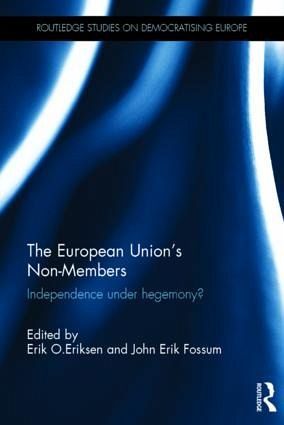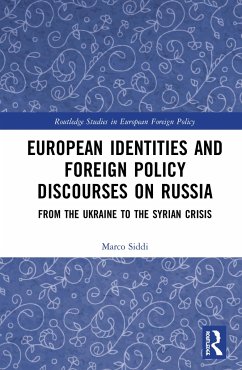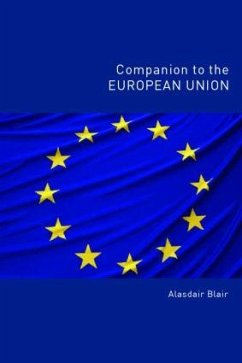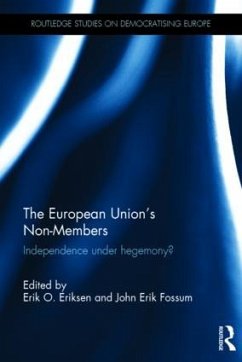
The European Union's Non-Members
Independence under hegemony?
Herausgegeben: Eriksen, Erik Oddvar; Fossum, John Erik
Versandkostenfrei!
Versandfertig in 1-2 Wochen
45,99 €
inkl. MwSt.
Weitere Ausgaben:

PAYBACK Punkte
23 °P sammeln!
The EU is a supranational organization, whose reach and influence extends well beyond its member states, especially to the many states that have signed various forms of association agreement with it.This book asks whether qualifying states who have eschewed EU membership experience negative effects on their legal and political self-governing abilities, or whether they manage their independence with few such effects. It explores the idea that the closer the affiliation a non-member state has with the EU, the more susceptible to hegemony the relationship appears to be. In addition, the book prov...
The EU is a supranational organization, whose reach and influence extends well beyond its member states, especially to the many states that have signed various forms of association agreement with it.
This book asks whether qualifying states who have eschewed EU membership experience negative effects on their legal and political self-governing abilities, or whether they manage their independence with few such effects. It explores the idea that the closer the affiliation a non-member state has with the EU, the more susceptible to hegemony the relationship appears to be. In addition, the book provides an overview of the total range of agreements the EU has with non-member states.
This text will be of key interest to scholars and students of in EU/European studies, Scandinavian studies, European and comparative politics, international relations, and democratization studies.
This book asks whether qualifying states who have eschewed EU membership experience negative effects on their legal and political self-governing abilities, or whether they manage their independence with few such effects. It explores the idea that the closer the affiliation a non-member state has with the EU, the more susceptible to hegemony the relationship appears to be. In addition, the book provides an overview of the total range of agreements the EU has with non-member states.
This text will be of key interest to scholars and students of in EU/European studies, Scandinavian studies, European and comparative politics, international relations, and democratization studies.














